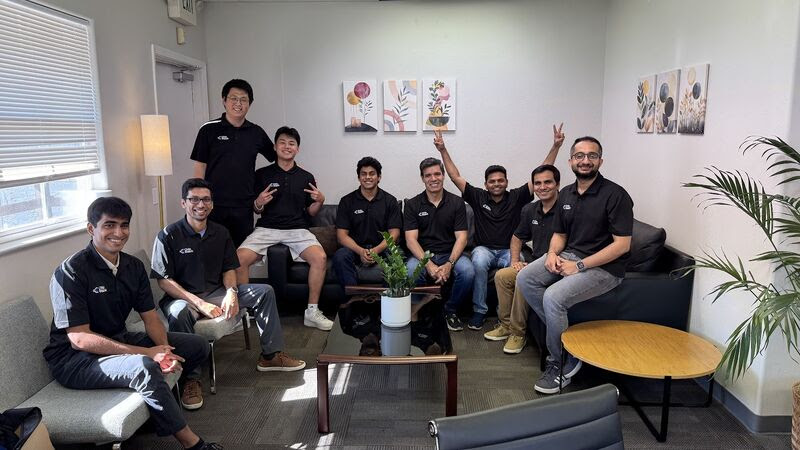Cadence Design Systems Acquires AI Chip Design Innovator ChipStack
Seattle AI Startup’s Rapid Rise Catches Industry Giant’s Attention
In a significant move that highlights the growing importance of artificial intelligence in semiconductor design, industry leader Cadence Design Systems has agreed to acquire ChipStack, a promising Seattle-based startup specializing in AI-powered chip verification tools. The acquisition, announced on November 10, 2025, brings ChipStack’s innovative technology and its 20-person team under the Cadence umbrella, strengthening the semiconductor giant’s AI capabilities in the increasingly competitive chip design market. While financial details remain undisclosed, ChipStack investors reportedly saw strong returns on the deal, marking a successful exit for a company that emerged from Seattle’s AI2 Incubator just two years earlier and raised over $7 million in funding from notable investors including Khosla Ventures, Cerberus Capital Management, and Clear Ventures.
ChipStack’s rapid journey from inception to acquisition illustrates the tremendous value of targeted AI solutions in addressing longstanding industry challenges. Founded in 2023 by CEO Kartik Hegde and CTO Hamid Shojaei, the company developed AI-powered agents that significantly streamline chip verification—traditionally one of the most time-consuming and labor-intensive aspects of semiconductor design. Hegde, who earned his PhD in computer science from the University of Illinois in 2022 and completed internships at tech giants Meta and NVIDIA, joined forces with Shojaei, whose impressive background includes roles at Lightmatter, Google, and Qualcomm. Together, they created technology that reportedly accelerates verification processes by an impressive 70%, addressing a critical bottleneck in bringing new semiconductor designs to market at a time when demand for advanced chips is soaring across industries from artificial intelligence to autonomous vehicles.
The acquisition represents a natural progression for the two companies, which had already established a partnership to integrate ChipStack’s AI tools with Cadence’s industry-standard design platforms. For ChipStack’s leadership, joining Cadence offered an opportunity to dramatically expand their reach and accelerate product development. “As ChipStack’s product adoption has grown, so has our ambition and vision,” Hegde explained in a LinkedIn post announcing the acquisition. “When the opportunity came to join Cadence, it was clear to us that this is the best way to take our product to a wider audience, while expanding the feature set even faster.” This sentiment reflects the practical realities facing many AI startups—while they may develop groundbreaking technologies, partnering with established industry leaders often provides the most effective path to widespread adoption and real-world impact.
From Cadence’s perspective, the acquisition aligns with the company’s strategic focus on enhancing its AI-driven verification capabilities—a critical area as semiconductor designs grow increasingly complex and verification becomes more challenging. The San Jose, California-based company has been systematically building its AI portfolio through both internal development and targeted acquisitions. ChipStack’s technology offers Cadence a competitive advantage in addressing one of the most persistent pain points in chip design workflows. By reducing verification time, chip designers can potentially bring new products to market faster and allocate engineering resources more efficiently—crucial advantages in an industry where time-to-market and development costs significantly impact competitiveness and profitability.
The success of ChipStack exemplifies the thriving AI startup ecosystem in Seattle, with AI2 Incubator playing a pivotal role in nurturing early-stage companies with transformative potential. Jacob Colker, managing director at AI2 Incubator, praised ChipStack’s founders as “elite AI talent building the next wave of companies—deep technical expertise meeting real-world impact.” This characterization highlights an important trend in the current AI landscape: the most successful ventures often combine deep technical expertise in artificial intelligence with intimate knowledge of industry-specific challenges. Rather than developing general-purpose AI systems, companies like ChipStack focus on applying advanced AI techniques to solve well-defined problems in specific domains—an approach that tends to deliver more immediate and measurable value.
The ChipStack acquisition underscores the broader trend of AI transforming traditional engineering disciplines like semiconductor design, which have historically relied heavily on human expertise and judgment. By creating AI agents that can automate complex verification tasks, ChipStack demonstrated how artificial intelligence can augment and accelerate human capabilities in highly specialized fields. As described by Colker, the company built “agentic AI that solves one of chip design’s biggest bottlenecks, accelerating verification by 70%.” This example of “applied AI innovation” represents what many industry observers see as the next frontier in artificial intelligence—moving beyond general-purpose AI models toward specialized systems that combine domain knowledge with advanced learning capabilities to solve specific, high-value problems. As the semiconductor industry continues to face pressure to develop more sophisticated chips on tighter schedules, we can expect to see further integration of AI across the design and verification process, potentially reshaping how the next generation of computing hardware comes to life.













